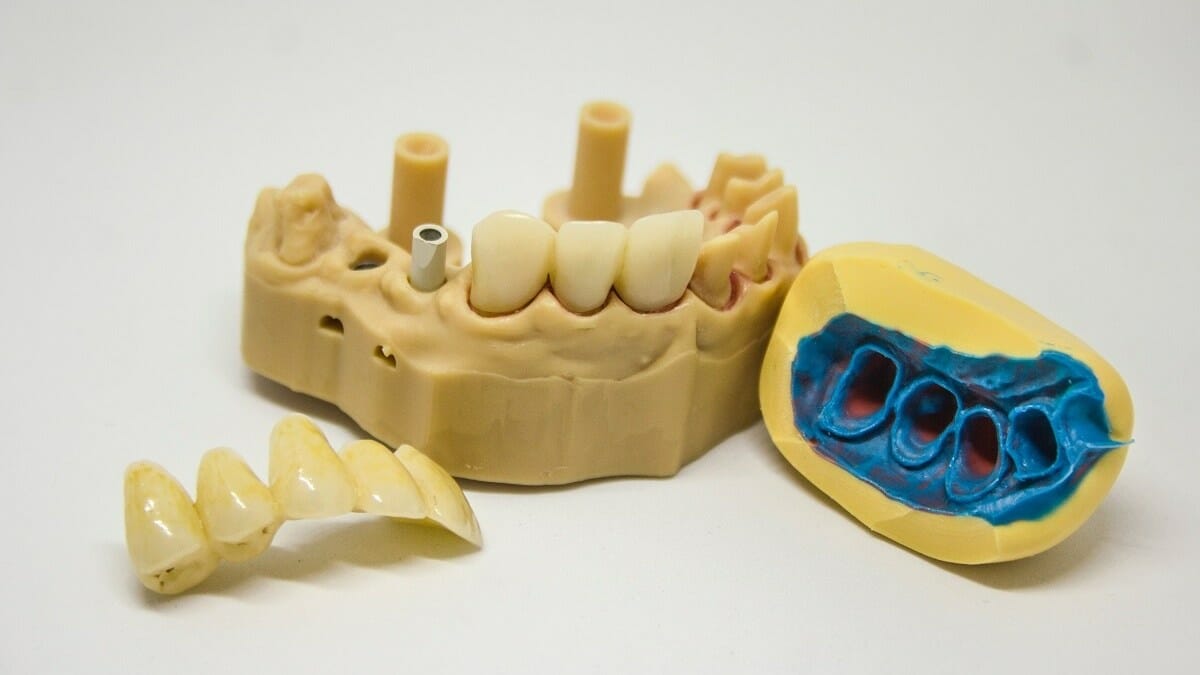Top Medical Schools Abroad for UK Students According to Stats, Price & Quality


Every year, more and more UK students are looking beyond the British shores to kick-start their medical careers. But if you’ve decided not to study back home, it’s only natural to want to find the best of the best as an alternative.
That’s why in this blog, we’ve made a list of the top medical schools abroad for UK students with the stats to back it up. The universities we’ve picked out each have advantages targeted at helping you become a successful doctor back home in Great Britain, on par with your peers.
We’ll go over your best options by focusing on the GMC (General Medical Council) recognition status of each university, their total number of GMC registrants, clinical training opportunities (including UK-based), acceptance rates, graduate success, and overall costs.
Please keep in mind that all stats & tuition fees are subject to change.
The key takeaways of this blog are:
- GMC recognition is non‐negotiable. Make sure your university is either directly recognised by the GMC or that its curriculum meets all necessary criteria.
- Getting UK clinical exposure is a significant advantage, and some medical schools abroad partner with NHS trusts to provide UK electives, observerships or clinical training. Hands‐on experience in a UK hospital not only bolsters your CV but also helps you hit the ground running when you return for Foundation Year applications.
- Tuition fees (as of June 2025) at the top destinations to study medicine abroad for UK students range between £5,550 and £18,550 per year.
- Top countries to study medicine abroad as a UK student include: The Czech Republic, Poland, Hungary, Georgia, Latvia, Cyprus, Bulgaria, Serbia, and Slovakia.
Table of Contents
- 1 Our Criteria for Choosing the Top Med Schools Abroad for UK Students
- 2 The Top Medical Schools Abroad for UK Students
- 2.1 Honourable mentions
- 2.2 But what do the stats say?
- 2.3 1. Charles University in Prague, the Czech Republic
- 2.4 2. Medical University of Lodz in Poland (city of Lodz)
- 2.5 3. Poznan University of Medical Sciences (PUMS) in Poland (city of Poznan)
- 2.6 4. Semmelweis University in Budapest, Hungary
- 2.7 5. University of Nicosia in Cyprus (city of Nicosia)
- 2.8 6. Tbilisi Medical Academy (TMA) in Tbilisi, Georgia
- 2.9 7. Riga Stradins University (RSU) in Latvia (city of Riga)
- 2.10 8. University of Health Sciences School of Medicine (UHSA) in Antigua & Barbuda
- 3 Why This Matters to You
- 4 The Bottom Line
- 5 FAQ
- 5.1 Are degrees from European medical schools recognised by the GMC?
- 5.2 How do I confirm that a foreign medical degree is acceptable for GMC registration?
- 5.3 Do I have to sit the PLAB if my school is GMC‐listed?
- 5.4 What does a UK clinical elective entail?
- 5.5 How competitive is the UK Foundation Programme for overseas graduates?
- 5.6 What documents are required for GMC registration?
- 5.7 Can I get financial support to study medicine abroad?
- 5.8 Will I be eligible to work in the NHS after graduating abroad?
- 5.9 How long does it take to complete a medical degree abroad?
Our Criteria for Choosing the Top Med Schools Abroad for UK Students
To make our list, we have looked at 6 main criteria -
- Total number of successful GMC registrants according to the official GMC Register.
- If the curriculum fulfils all GMC criteria. Only universities that are either directly recognised by the GMC or fulfil all curriculum criteria can make the cut. It’s important to note that the GMC does not directly recognise or accredit universities outside of the UK.
- Acceptance rates to help you gauge your chances and help you understand what A-level grades and exam preparation you should be going for if you want to secure a spot.
- Do they have UK clinical training opportunities? Priority was given to schools that have agreements with NHS trusts, offering practical training, electives or observerships within the UK healthcare system.
- Tuition fees & living costs (as of June 2025). We have also added several exceptional medical schools that offer affordable, high-quality medical education.
- Postgraduate success - how easy it is for graduates to secure a position as a healthcare professional (including in NHS trusts) and whether the medical school offers postgraduate support. We examined alumni surveys, graduate‐destination reports, and GMC “yearly retention” figures for precise graduate outcomes.
If there is no data available for any of these criteria, we will skip it.
The Top Medical Schools Abroad for UK Students
- Charles University, Czech Republic
- Medical University of Lodz, Poland
- Poznan University of Medical Sciences (PUMS), Poland
- Semmelweis University, Hungary
- University of Nicosia, Cyprus
- Tbilisi Medical Academy (TMA), Georgia
- Riga Stradins University (RSU), Latvia
- University of Health Sciences (UHSA), Antigua & Barbuda
Honourable mentions
- University of Novi Sad, Serbia
- University of Pecs, Hungary
- Medical University of Bialystok, Poland
- Lithuanian University of Health Sciences (LMSU), Lithuania
- The Medical University of Sofia, Bulgaria
- Ross University School of Medicine (RUSM), Barbados
- Comenius University, Jessenius Faculty of Medicine in Slovakia
But what do the stats say?
1. Charles University in Prague, the Czech Republic
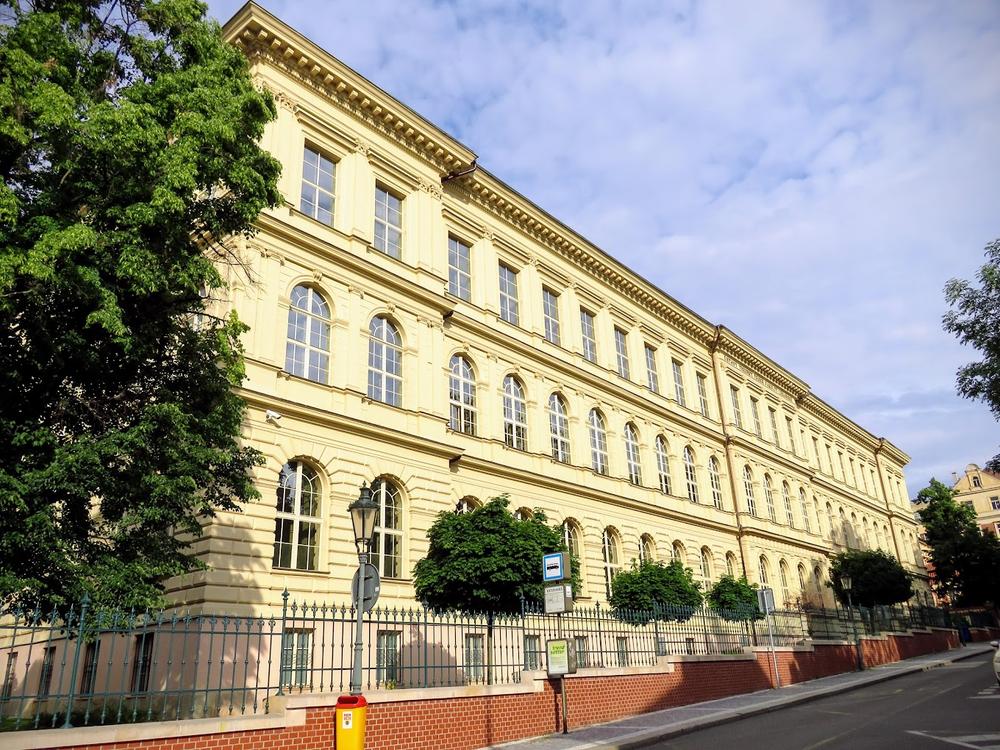

Charles University was founded in 1348 and is one of the oldest and most prestigious medical schools in Europe. Its 6-year MD programme is taught entirely in English and consistently ranks among the top 1% of medical faculties worldwide.
- Total GMC registrants
In 2025, over 1,270 graduates from Charles University’s medical faculties are registered with the UK General Medical Council. An overall very strong track record of UK placements. - Acceptance rate
In the 2024–25 admissions cycle, 218 of 785 applicants secured places on the English MD programme, which is an acceptance rate of about 27.8%. - GMC recognition & clinical training
Graduates receive an internationally recognised diploma that is accepted by the GMC. Although there are no formal clinical training arrangements in the UK, the university’s practical training network includes the best hospitals in Prague. - Tuition fees and living costs
Studying at Charles University costs between £13,100 and £17,750 per year, depending on the faculty. Living costs range from £800 to £1,200 per month, depending on the location. - Postgraduate success
Graduates at Charles University consistently secure high placement rates in UK Foundation and speciality training posts, as evidenced by the high number of successful GMC registrants.
What makes Charles University such a great option for UK students?
Charles University is 1 of the top destinations in the world for students looking to study medicine in English.
Not only does it have state-of-the-art infrastructure (such as the BIOCEV Centre for Biomedicine) for research and training, but the medical school also has a very strong international network of partners. This includes respected universities such as the Imperial College of London and the University of Amsterdam, among many others, where students can participate in exchanges or joint research projects.
2. Medical University of Lodz in Poland (city of Lodz)
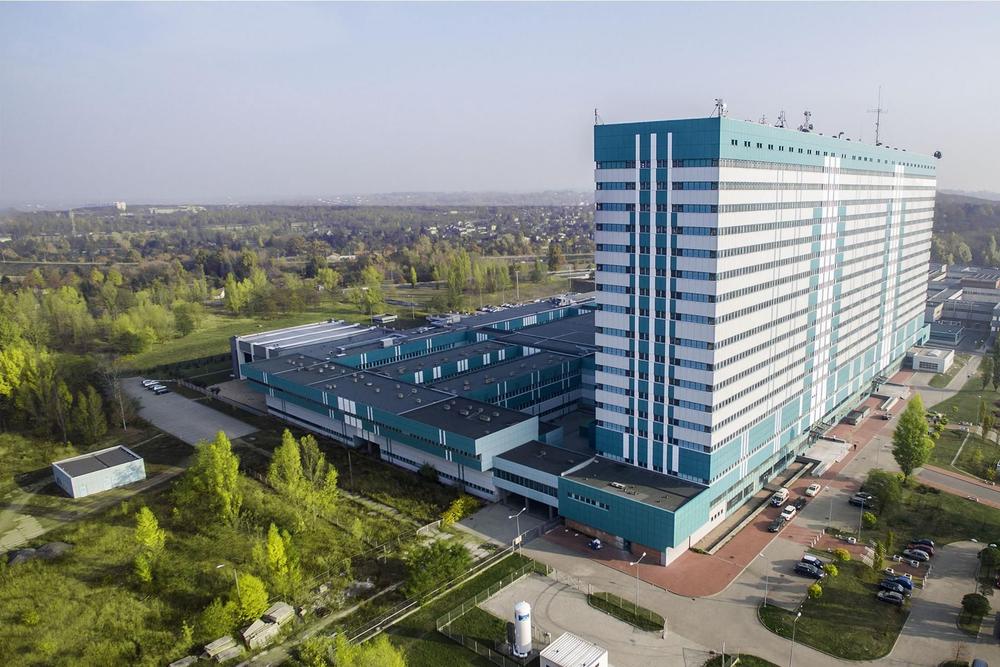

Formed in 2002 through the merger of two academies, the Medical University of Lodz is Poland’s largest public medical university. Its English-language medical and dental programmes have been running for over two decades with exceptional postgraduate success.
- GMC registrants
73 total successfully registered graduates with the GMC, with 61 of them being just in the last 3 years. The Medical University of Lodz ranks among the top Polish med schools for recent graduate placements into the UK medical register. - GMC recognition & clinical training
Both the medicine and dentistry programmes in English meet all criteria by the GMC and GDC, respectively. While there are no formal NHS-affiliated clinical placements, students complete all practical training at university-affiliated hospitals in the city. Additionally, individual elective rotations in UK NHS trusts can be arranged independently. - Tuition fees and living costs
Medicine costs £12,150 for the 1st year, £12,000 per year afterwards, while living costs are about £900 per month. - Postgraduate success
Medical University of Lodz graduates have a strong international presence, with over 1,200 alumni practising worldwide, including many GMC registrants.
Why Medical University of Lodz?
The university is equipped with a dedicated Medical Simulation Centre, where UK students can perfect their practical skills before moving on to real patients. Studying in Lodz also provides access to the medical school’s Erasmus+ partnerships, allowing students to gain invaluable international experience that can smooth out the professional transition into both NHS and European postgraduate programmes.
3. Poznan University of Medical Sciences (PUMS) in Poland (city of Poznan)
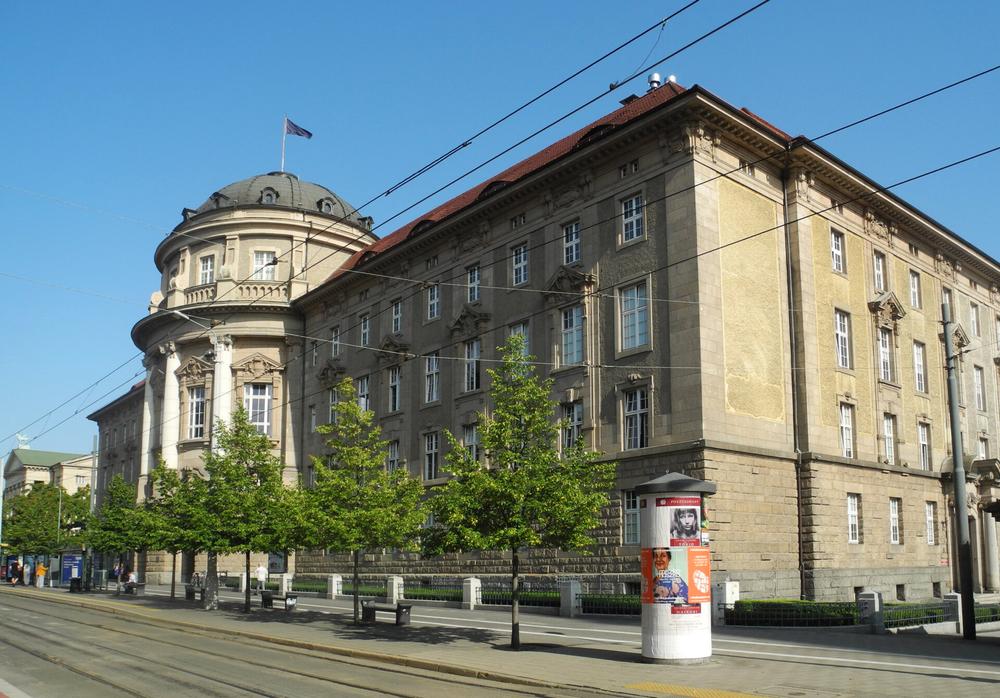

Established in 1919, Poznan University of Medical Sciences (PUMS) is consistently rated among Poland’s top medical schools, particularly renowned for its medicine programme in English.
- GMC registrants
122 graduates on the GMC register. - Acceptance rate
According to EduRank calculations, the acceptance rate to PUMS is approximately 10%. There’s no need to worry, though, because the Medlink Students Student Success Programme is designed to help you secure your spot at a prestigious medical school abroad. This includes entrance exam and interview preparation, as well as complete admissions support, and much more. - GMC recognition & clinical training
The English medical curriculum meets and exceeds all GMC criteria. Clinical training at PUMS takes place in partnered teaching hospitals, and students may arrange 4 or 6-week electives in UK NHS trusts through student societies or formal exchange agreements. - Tuition fees and living costs
Medicine in English at PUMPS costs £13,750 for the first 2 years, and £15,100 for years 3 to 6. Meanwhile, living costs are about £750 per month. - Postgraduate success
Over 100 PUMS graduates have secured UK Foundation Programme posts, thanks to strong support networks and established pathways.
What makes Poznan University of Medical Sciences a great pick for UK students?
The Poznan University of Medical Sciences is a member of the AAMC’s VSLO programme, which explicitly enables students to arrange elective rotations for credit anywhere, including NHS trusts. Besides that, the university is home to a very rich international cohort with many UK students on campus.
4. Semmelweis University in Budapest, Hungary
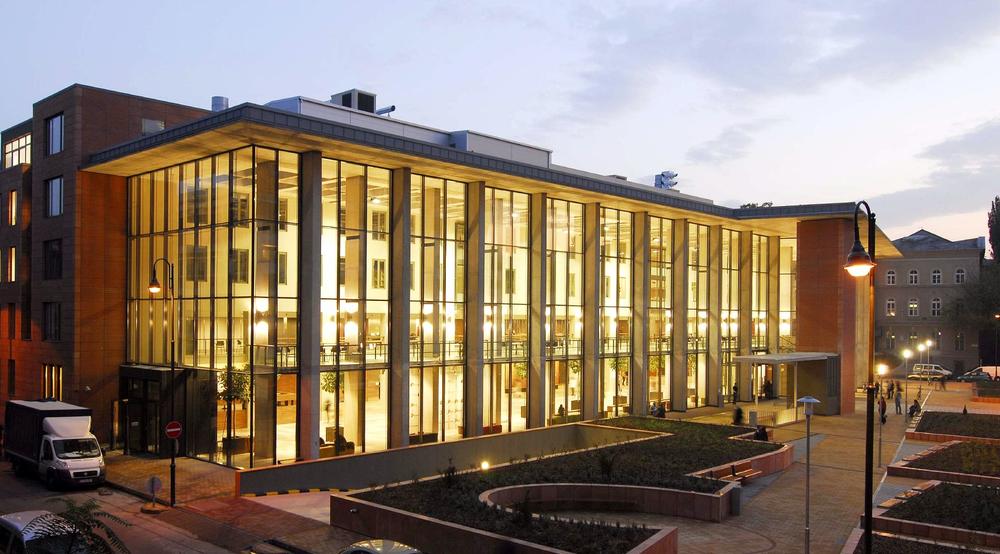

Founded in 1769, Semmelweis University is Hungary’s top medical school and 1 of the best in Europe. Currently, it is ranked among the top 250 universities in the world.
- GMC registrants
727 total GMC registered graduates, among the highest in Europe. - GMC recognition & clinical training
Semmelweis degrees carry full GMC recognition. Final-year students can undertake UK electives via accredited hospitals, including a complimentary 5-week clinical elective term in the NHS. Additionally, a “UK Clinical Skills” module is delivered earlier in the programme by visiting faculty from the United Kingdom. - Tuition fees and living costs
Medicine in English at Semmelweis University costs £14,950 and living expenses cost about £1,000 monthly. - Postgraduate success
Semmelweis graduates get early clinical exposure and strong research opportunities, resulting in high placement rates in UK Foundation and speciality training positions after graduation.
What makes Semmelweis University a top contender?
With a dedicated module for UK clinical skills and clinical training opportunities in the UK for electives, Semmelweis University truly stands out as an exceptional choice. After all, the medical school yields one of the highest UK placement rates among universities abroad.
5. University of Nicosia in Cyprus (city of Nicosia)
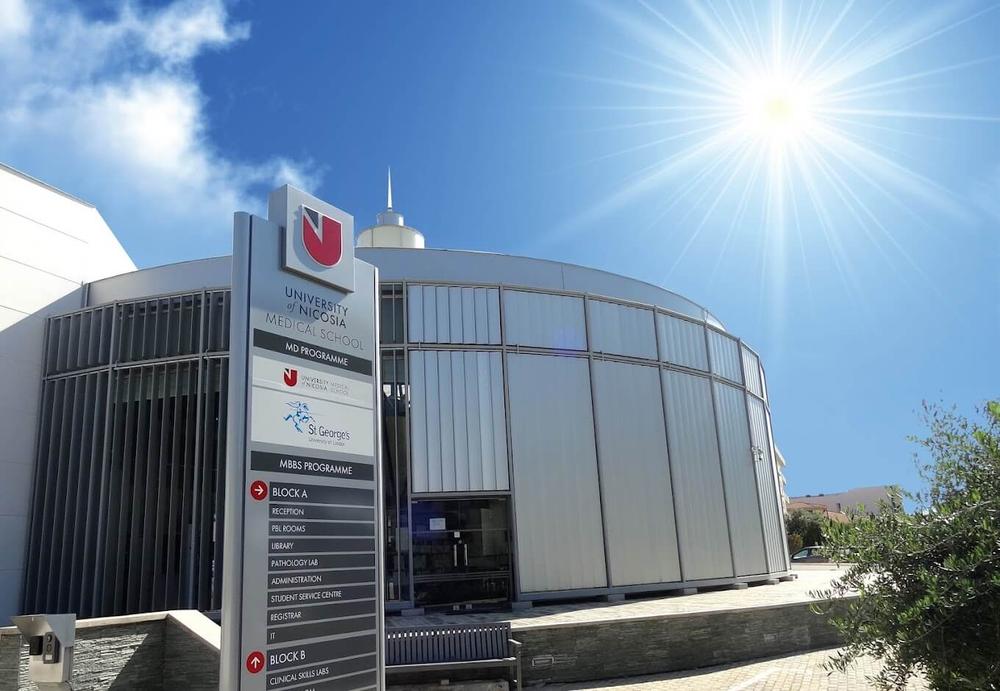

The University of Nicosia was established in 1980 in the island nation’s capital, Nicosia. The university’s MD programme is taught entirely in English and features a curriculum that is designed with an international perspective to prepare students for success on a global scale.
- GMC registrants
144 total GMC-registered graduates. - GMC recognition & clinical training
The MD programme at the University of Nicosia meets all GMC requirements.. Clinical training takes place in the city’s major hospitals with elective options in UK NHS trusts. - Tuition fees and living costs
The tuition fees for medicine in English are £18,550 annually, with living expenses averaging about £1,250 per month. - Postgraduate success
The MD programme boasts a 99.8% graduate employment rate in 2023, followed by a 99.9% update for 2024, with many alumni practising in NHS posts or pursuing international residencies.
How about a Mediterranean lifestyle while studying medicine at the University of Nicosia?
With such an exceptional graduate employment rate, the University of Nicosia is a solid pick for any UK student looking to study medicine abroad. On top of being able to plan electives in NHS trusts, studying in Cyprus offers 6 years of living on a Mediterranean island with all of the lifestyle perks that come with it.
6. Tbilisi Medical Academy (TMA) in Tbilisi, Georgia


Studying medicine in Georgia has become a popular destination for international students, with the Tbilisi Medical Academy being a top choice. The university employs a comprehensive, evidence-based curriculum that adheres to global standards and prepares students for successful careers in healthcare across the world.
- GMC registrants
5 registered graduates with the GMC. The university has started offering an English-language curriculum relatively recently, but despite that, TMA graduates have already successfully secured GMC registration. - Acceptance rate
EduRank estimates an acceptance rate of around 60% for TMA. There is no entrance exam, which makes it 1 of the most accessible options on this list. - GMC recognition & clinical training
The English-language medicine course at TMA follows all requirements set by the GMC. Clinical training here is carried out at 40 different affiliated hospitals and clinics in the country. - Tuition fees and living costs
TMA is the most affordable option on the list, with tuition fees at just £5,550 per year and living costs at £750. It is by far 1 of the most inexpensive ways to get a high-quality medical education abroad that will enable you to become a doctor in the UK. - Postgraduate success
TMA has produced over 2,500 medical graduates, many of whom have secured positions in leading hospitals, universities, and research centres worldwide.
What makes the Tbilisi Medical Academy a contender?
TMA's curriculum is based on evidence-based learning that integrates early clinical exposure to allow students to apply their knowledge in real medical settings from the beginning. The medicine programme completely aligns with international standards and prepares graduates for international licensure exams (including the PLAB), which in turn provides a smooth pathway into healthcare systems like the NHS.
7. Riga Stradins University (RSU) in Latvia (city of Riga)
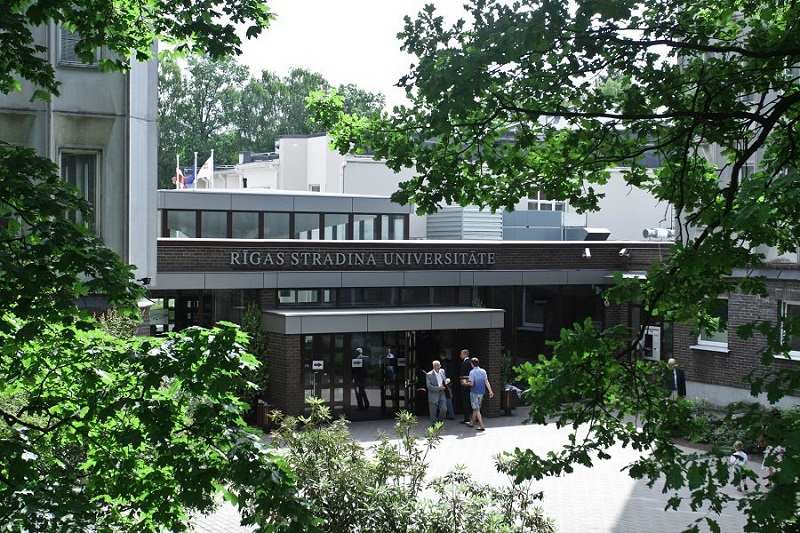

Riga Stradins University (RSU) is Latvia’s best medical university and an exceptional destination for studying medicine abroad. It offers programmes for medicine and dentistry in English, both of which award internationally recognised degrees.
- GMC Registrants
237 alumni from RSU are listed on the GMC register, showing very strong UK placement rates for medicine graduates. - GMC recognition & clinical training
The curriculum completely aligns with GMC standards and is accepted. Clinical training at RSU is conducted in the medical school’s own university hospitals and in major medical establishments across Europe. - Tuition fees and living costs
Medicine costs £11,400 per year, while dentistry is £13,100 annually. Living costs in Riga are about £1,050 per month. - Postgraduate success
RSU graduates consistently achieve strong employment outcomes, with 92.8% of RSU alumni employed in healthcare. About 93% of these graduates secured positions in highly qualified professions, reflecting the university's commitment to producing competent healthcare professionals.
What are the advantages that Riga Stradins University gives to UK students?
RSU offers a few unique advantages. First, it integrates cutting-edge educational tools, such as 3D anatomy visualisation tables and modern simulation centres. Second, the medical school maintains intentionally small class sizes, with an average of 14 students per class and a 13:1 student-to-teacher ratio in clinical subjects, ensuring personalised attention.
Finally, RSU's extensive network of partnerships with hospitals across Europe provides students with valuable international clinical exposure.
8. University of Health Sciences School of Medicine (UHSA) in Antigua & Barbuda
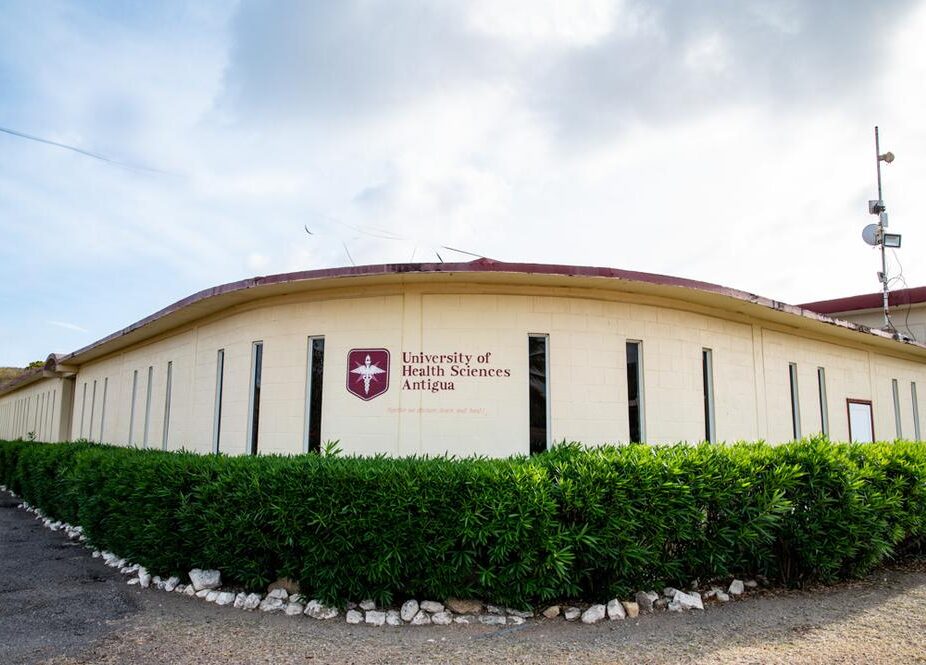

UHSA is located in the Caribbean island nation of Antigua & Barbuda. Besides offering a laid-back island lifestyle, the university has a 4-year graduate-entry MD programme in English designed to prepare students for licensure exams in the US, UK, and other countries.
- GMC Registrants
30 graduates registered with the GMC. - GMC recognition & clinical training
The MD grad entry programme at UHSA fulfils all criteria and is accepted by the GMC. Clinical training here is carried out in the medical school’s network of partners, which includes an NHS trust - the Queen Elizabeth Hospital, King's Lynn in the UK. - Tuition fees and living costs
£6,350 per year with Medlink Students' exclusive scholarship. - Postgraduate success
UHSA's graduates have successfully entered medical practice in over 21 countries, showing the university’s commitment to producing globally competent physicians.
Studying medicine in paradise?
Besides simply being an enjoyable destination, studying in Antigua and Barbuda comes with some superb advantages. The 4-year graduate-entry MD programme is modelled on US and UK standards, enabling graduates to fast-track into NHS or US residency pathways. Additionally, UHSA’s diverse clinical options, which include training opportunities in the UK, will let you get practical experience within the NHS before you even graduate.
Why This Matters to You
Picking out a medical school might just be one of the biggest decisions a person can make. Not only does your student life depend on it, but so does your professional future. The worst part is that if you were to choose a medical school that isn’t GMC-recognised, you will end up with a worthless degree that will bar you from returning back home to become a doctor in the UK.
That’s why it’s absolutely essential to do your research before committing. By choosing a medical school with a strong track record of GMC recognition, UK clinical placements or electives, and proven graduate success, you’re simply making a smart decision to safeguard your future.
Why have worries about your future when you can ensure a smooth return to the UK and set yourself up for a rewarding career in medicine?
The Bottom Line
Hopefully, by the end of this blog, you already have your initial list of medical schools you’re interested in. Now it’s time to make a shortlist with your top choices - do you want to study at a premier destination like Charles University or Semmelweis University? Perhaps you're looking for a budget-friendly option, like the Tbilisi Medical Academy or a more exotic experience at UHSA in the Caribbean, which even has clinical training opportunities in the UK.
Or maybe you can’t quite decide yet and would like some guidance on making an informed decision about your future. If that’s the case, Medlink Students offers completely free consultations with our British Council-certified academic advisors, who can help you pick out your perfect destination based on your goals and ambitions.
Sign up for your free consultation and take the first step towards becoming a doctor with the confidence that you’re making the best decision for your future.
FAQ
Are degrees from European medical schools recognised by the GMC?
Yes, many European medical schools offer programmes that meet all the GMC requirements. However, the GMC does not directly accredit or recognise universities outside the UK. Instead, it provides guidance on what it considers acceptable qualifications.
How do I confirm that a foreign medical degree is acceptable for GMC registration?
For an in-depth explanation, feel free to read our blog - GMC Approval Guide for Overseas Medical Qualifications.
Do I have to sit the PLAB if my school is GMC‐listed?
Yes, sitting the PLAB is mandatory to become a licensed medical professional in the UK if you’ve graduated abroad (unless you fulfil the exemption criteria).
What does a UK clinical elective entail?
Most overseas programmes allow you to apply for a 4 or 6-week elective placement in an NHS hospital. Typically, students submit an application form, sometimes via a partner university, and then arrange travel, accommodation, and mandatory pre-placement checks (including occupational health, DBS, etc.). During the elective, you’ll generally shadow/observe doctors, write up patient notes under supervision and attend speciality clinics, depending on your placement.
How competitive is the UK Foundation Programme for overseas graduates?
Overseas graduates compete directly with UK graduates. Your ranking is determined by your Educational Performance Measure (EPM), Situational Judgement Test (SJT) score, and any additional points (e.g. for degrees, publications). A degree from a well-recognised overseas school, especially 1 with UK clinical exposure, helps you earn a strong EPM and secure a Foundation Year 1 spot.
What documents are required for GMC registration?
You will need to provide proof of your primary medical qualification, evidence of English language proficiency, a Certificate of Good Standing from relevant medical regulatory authorities, and details of your internship or postgraduate experience.
For a full list of the steps you need to take to register with the GMC, read our blogs for EU graduates and non-EU graduates.
Can I get financial support to study medicine abroad?
Yes, you can get financial support to study medicine abroad. Medlink Students even offers exclusive scholarship opportunities for a couple of the universities on this list.
Will I be eligible to work in the NHS after graduating abroad?
Yes, many graduates from European medical schools successfully secure positions within the NHS.
How long does it take to complete a medical degree abroad?
European medical programmes take 6 years to finish, while graduate entry MD programmes last for 4 years.
Leave a Reply


About Medlink Students
Leading international recruitment company for medical students in Europe. British Council Certified Agents. 10+ years of experience and more than 10,000 students advised.






